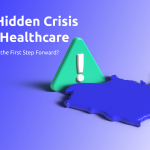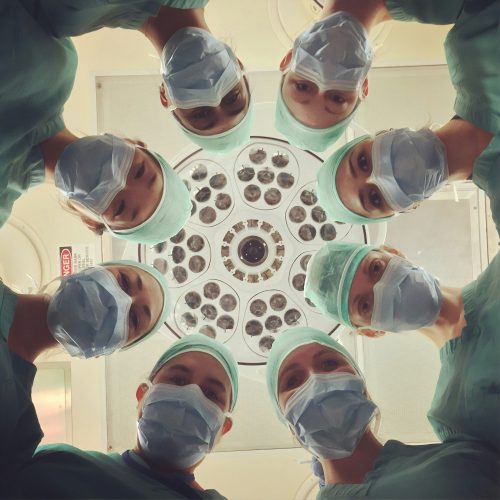
The Hidden Crisis in GCC Healthcare | Why AI Scribing is the First Step Forward?
September 23, 2025
Predictive Oncology: What AI Means for Clinicians and Healthcare Leaders
October 7, 2025
Tackling Medical Error Problem with Technology
Medical errors represent one of the most significant challenges to patient safety and place a considerable burden on healthcare systems. A revealing study conducted at a tertiary hospital in Kuwait, titled “Medical errors: Healthcare professionals’ perspective,” casts a stark light on the situation, providing crucial local data on a global problem. The findings underscore the urgent need for innovative solutions that target the root causes of these preventable events.
The Sobering Reality of Medical Errors
The study provides a critical perspective on the frequency and consequences of medical errors within a local context. It found that a staggering 60.3% of common medical errors result from systemic, preventable issues. These incidents have severe consequences, including:
- Prolonged hospital stays (32.9%)
- Adverse, life-threatening complications (32.3%)
- Patient fatalities (20.9%)
The most common mistakes identified were not necessarily due to a lack of clinical skill but were linked to operational pressures. These included dispensing medication with incomplete instructions, administering incorrect dosages, diagnosis errors, and simple labeling mistakes.

What's Driving These Errors?
To find a solution, it’s essential to understand the cause. The study identified several key drivers behind these errors, which are deeply human and systemic:
- High Workload & Stress: Overburdened healthcare professionals are more prone to mistakes.
- Miscommunication: Gaps in communication between clinicians, or between clinicians and patients, lead to critical information being lost.
- Lack of Support Systems: Inadequate tools and processes leave clinicians without the safety nets needed to catch potential errors.
- Inadequate Training & Non-adherence to Guidelines: Manual, inconsistent processes make it difficult to enforce best practices universally.
A common reaction to these issues is to suggest hiring more medical professionals. However, this approach often fails to address the core problem of inefficiency and instead inflates costs, adding to the system’s financial burden without guaranteeing a reduction in errors. The real solution lies not in more hands, but in smarter systems.
An AI-Powered Solution: The Role of Scribing Technology
This is where AI-powered scribing technology emerges as a game-changer. It offers a practical, immediate solution that directly addresses the root causes of errors identified in the study.
- Combating High Workload and Stress: The administrative burden of documentation is a primary driver of physician burnout. AI scribes listen to and transcribe patient-doctor conversations in real-time, creating accurate, structured clinical notes automatically. This frees physicians from hours of paperwork, allowing them to focus their cognitive energy where it matters most: on patient care and critical decision-making.
- Eliminating Miscommunication: Human memory is fallible, especially under stress. AI scribing captures the complete and nuanced details of every patient encounter. This ensures that instructions are complete, diagnoses are recorded accurately, and the next clinician in the care chain has a perfect record to work from, dramatically reducing errors stemming from lost information or poor handwriting.
- Providing an Intelligent Support System: This technology acts as a reliable partner for every clinician. By standardizing documentation and ensuring all necessary fields are completed, it creates a robust, auditable record. This is a foundational step for a safer healthcare ecosystem, enabling better analytics, quality control, and adherence to safety guidelines.
The Future is Integrated and Intelligent
AI scribing should be seen as the crucial entry point for a broader AI integration in healthcare. By solving the documentation bottleneck, this technology builds the high-quality data foundation necessary for more advanced AI tools that can assist in diagnostics, predict patient risk, and personalize treatment plans.
The path to a safer, more efficient healthcare system doesn’t solely depend on increasing the workforce. It depends on empowering our existing, highly skilled professionals with tools that remove friction, reduce cognitive load, and allow them to perform at their best.
About TiM
TiM is an innovative Healthtech company dedicated to shaping the future of healthcare. By combining deep medical insight with top-tier AI engineering, we develop solutions like our advanced AI Scribe to streamline clinical workflows. Our mission is to save doctors invaluable time, reduce the incidence of medical errors, and elevate the quality of patient care in the GCC. We believe in the power of technology to enhance, not replace, our invaluable healthcare professionals, creating a future with better outcomes for all.

